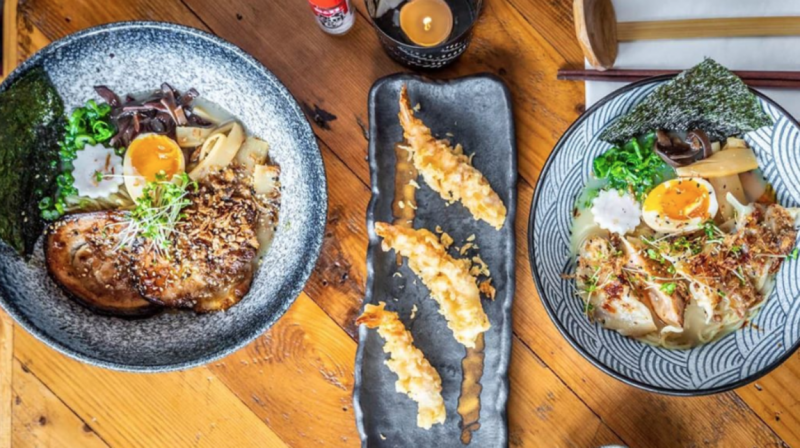
On a Friday afternoon, a stroll to the far end of Rathmines ended pleasantly with a hot bowl of ramen from the recently opened Ramen Co. With a second location in Stoneybatter, this newly opened restaurant has approached ramen in an orthodox manner. Its spot in Rathmines is largely in tune with the majority of restaurants in the city, in terms of both price and decor. Simple wooden furnishings and bright colours, as well as lovely staff, make this a pleasant atmosphere in which to enjoy some ramen.
However, despite the pleasing setting, the ramen failed to truly impress. Ramen originated around the turn of the 20th century and truly took root after World War II, when American food habits took hold of the soup noodles that came to Japan from China.
In the aftermath of the war, Japan relied on American imports to sustain itself – namely wheat and lard, the two staple ingredients in any ramen dish. The dish became a mainstay in the diet of the Japanese workforce in the 1960s during huge economic growth throughout the country. However, ramen experienced a shift towards nuanced reinterpretations in the 1980s as it took hold among young, experimental chefs who transformed the once-primitive dish into a crafted statement of expression.
I had Ramen Co’s Tonkotsu Pork, the classic ramen dish made from a pork-based broth that is lovingly topped with slow-cooked pork belly, a pickled egg, black fungus, bamboo shoots and black garlic seaweed. Ramen is unquestionably a superior noodle dish, and it could be argued that this is down to the careful arrangement of these delicate – yet unctuously flavourful – garnishes.
When faced with what the culinary arena has to offer, I am most tempted by the prospects of an exciting array of garnishes as they offer delightful ornamentation to any dish. At Ramen Co, these garnishes fall somewhat flat, failing to deliver on the opportunity for aesthetics and deliciousness.
While the pickled egg is exactly the amalgamation of soft and tangy sponge I had hoped for, the bamboo shoots and garlic seaweed failed to create the umami background imperative to the rounded flavours of ramen. The slow-roasted pork belly was quite scrumptious and certainly delivered in flavour.
However, the fat needed further rendering in order to achieve true chasu-level tenderness. The noodles were satisfying, but when compared to traditionally crafted noodles other ramen outlets in Dublin offer, they are in no way an example of the complex goodness a ramen noodle has to give.
Despite Ramen Co’s valiant efforts at crafting a menu of traditional ramen dishes, the exciting and innovative prospects that ramen has to offer are absent here, making for a tasty yet rather lacklustre lunch experience. Perhaps some culinary bravery is required from the chefs behind the counter at Ramen Co to craft a dish that is renowned for its dynamism.






